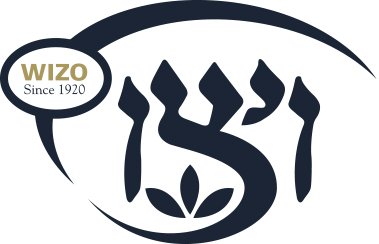Meet Alysha
In an apartment in Kiryat Nordau, three-year-old Alysha sits on her mother’s knee listening intently to a story that one of her elder brothers reads to her from the colourful picture storybook she received at day care. As he reads to her and her elder sisters, Alysha’s mother points to the pictures and repeats the words in Hebrew after him.
Alysha’s mother and father do not know how to read and write in Hebrew although they do speak a little, just enough to get by. In their local community, so heavily populated by low-income Ethiopian families like themselves, Alysha’s father, a manual worker, never saw the need to learn Hebrew. At home, and in the neighbourhood they speak in their native language of Amharic to friends and neighbours while they rely on their Israeli-born and educated children to translate written Hebrew words for them.
In the evening, when the younger children are in bed, Alysha’s mother takes out the storybook and copies down words in Hebrew into a notebook. This way, she learns as she always wanted to do, but felt embarrassed to tell her husband, and so she keeps it a secret shared only with her eldest son and Etti, the director of the WIZO UK-sponsored Grete & Henry Abrahams Day Care Center in Kiryat Nordau, which Alysha attends. Her eldest son often sits with his mother and prepares her small written exercises, using words found in the storybooks that Elysha receives from the WIZO Day Care Center.
These storybooks are part of the pyjama Library, (Sifriat Pyjama) a reading initiative that aims to instil literacy and Jewish values. Every month during the school year, kindergarten classes of all WIZO’s Day Care Centers throughout Israel receive a new book from the Pyjama Library, selected by WIZO’s pedagogic specialists. After the children enjoy the story and enrichment activities based on the story in the book at day care, each child is given a new copy of the book to take home with them so they can role play and love of words can be enjoyed in a family setting as well as in the classroom.
Day care center director, Etti, explains:
“Every child loves getting his or her very own book to take home, and here where the population is so poor, buying books is not on the parents’ priorities so it is a real and meaningful gift. It promotes not only a love of reading, but it generates quality family time where parents actually sit down with their children and they read the stories together.”
Alysha’s mother is not alone. Many of our parents cannot read and write Hebrew, and the Pyjama Library enhances their own Hebrew as well as their children’s reading skill. Because the family sits down together with older siblings who do read and write in Hebrew, everyone benefits. These books are the perfect way to encourage those parents to work on their own Hebrew literacy skills, which is really a win-win situation.”
Etti also says that since the introduction of the Pyjama Library, more and more parents and grandparents are volunteering to take part in the activities based around the books at the day care center, and this has had a very beneficial effect in bridging gaps, particular between the Hebrew speaking children and Amharic speaking grandparents.
Alysha’s mother says that a whole new world has opened up for her as her Hebrew literary skills have improved. She is as excited as Alysha by the prospect of having a new book from the Pyjama Library to read, and she recently told Etti that she looks forward to the time when SHE will be the one who reads bedtime stories to Alysha in Hebrew. Indeed, the day care centre has given Alysha’s mother some old children’s books to read for her to practice her newfound skill.
The Pyjama Library is the Israeli version of an international program called the PJ Library of the Harold Grinspoon Foundation who cover 50% of its costs. Its introduction and first two years of its operation in WIZO Day Care Centers was made possible by the generosity of WIZO USA. Now, more and more WIZO Federations around the world are supporting this early education-enhancing initiative, which not only promotes Hebrew literacy but also invites a healthy interest in the written word, not just for the children but, as is seen here, for many of their parents – and grandparents, too.
(Names changed to preserve anonymity)
(Photo for illustration purposes only)

